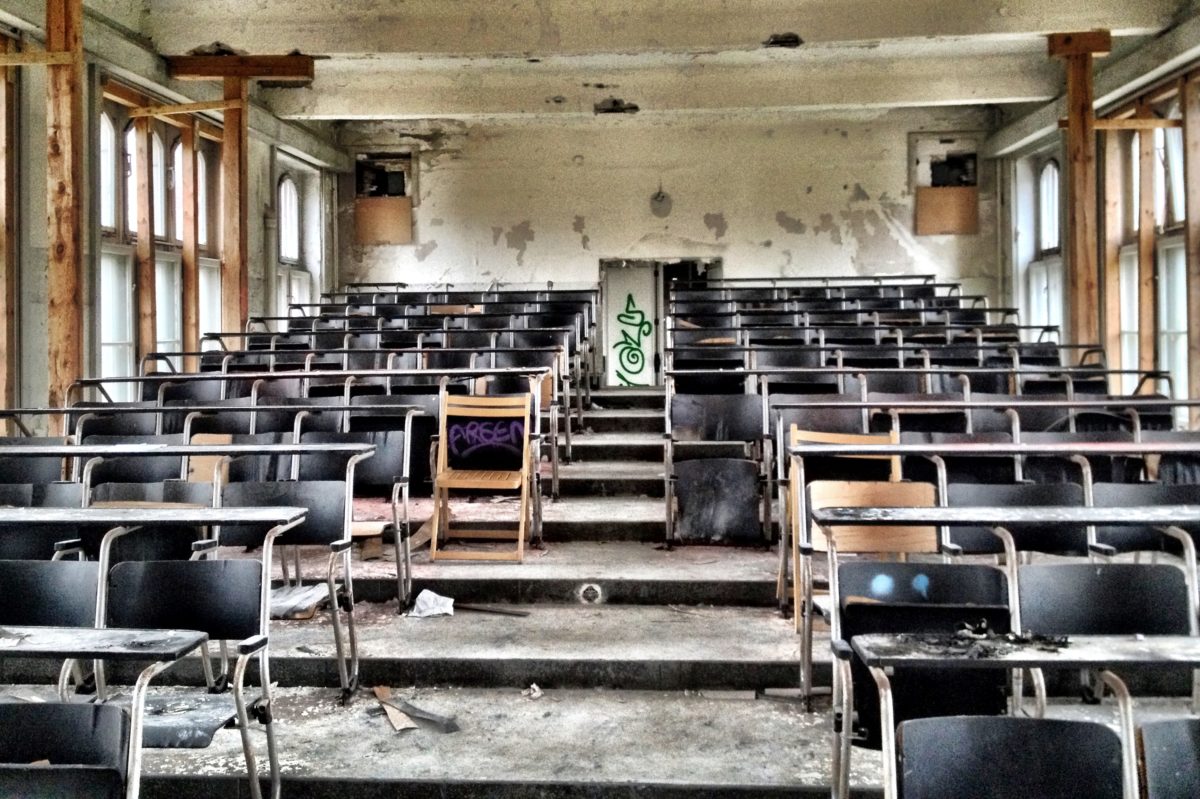The cost of a college education has recently hit an all-time high. However, despite the increase, with unemployment among liberal arts majors at 9 percent, many graduates are finding it incredibly difficult to find work in their field, and plenty struggle to find work at all. With the rising cost and decreasing value of a liberal arts education, many are starting to wonder why students are willing to incur the crippling cost of college. As a recent Minnesota Daily article observed:
For most students who are thrown out to an unforgiving “real world” with liberal arts degrees, the survival of the fittest is not just a theory. Unlike technical majors such as engineering, health care and information technology, most liberal arts students are not sure where they will end up.
However we think about a liberal arts education, the economic realities and job market beyond the classroom demand an urgent redesign of the humanities so there is a balance between intellectual and economic gain. Doing so would prepare generations of students for a dynamic future job market.
While the author illustrates the mounting problem of a liberal arts education poignantly, he has failed to fully diagnose the cause of the decline in value of a liberal arts education. Universities may need to restructure their curriculum, but what about the most important individual in a student’s life, the student? The student selects his degree program, participates in the coursework, and is ultimately responsible for what he makes of the education he chooses to receive. As we previously argued, many students fail to make the most of their education because they fail to take a firsthand, independent attitude toward the value of their time in school:
What many students confront when college ends is the jarring realization that they’re on their own, and that being proficient on one’s own, i.e. being independent in thought and action, is a far more basic requirement of success than possession of a degree. But independent thought and motivation is undermined at every turn in the college trajectory. Children aren’t offered higher education as something they should independently choose to value and pursue: they are confronted instead with a series of clichés lacking critical assessment of pros and cons. High school students are coached to approach learning not because the courses are personally interesting and significant, but because those courses have currency with anonymous college admissions officers. College students often find little required of them in terms of effort and thought: the inflation of grades and reduction in assigned reading and writing is well-documented. And naturally, graduates find themselves unsure of what they’re supposed to do with the title conferred upon them at the end—and hope that society will take care of the opportunity for them.
Many students are failing to find opportunities after graduation because they have assumed all along that simply by following their academic career to the next step, an economically stable future will be waiting for them. This trend is especially common within the humanities.
Many courses in the humanities are ready-made for students who aren’t interested in the coursework, who simply want to perform the minimum necessary to get the degree that others think they should get. Unlike degree programs in more technical fields, the humanities require less mandatory participation and feature less rigorous forms of evaluation. Lectures once based on dialogue between instructor and student have become monologues heard by droves of students crooning, “C’s get degrees.”
These students have been encouraged by their mentors to take and maintain this attitude. The pervasive attitude in our country has become, “everyone should go to college.” Yet, nobody stops to ask why. The guidance counselors and teachers urging students to go to college without ever communicating a reason beyond a vague explanation of its importance to one’s future are also at fault.
Rather than merely casting blame upon universities for poorly structured humanities programs, we ought to recognize that the full cause of the problem is also due to students aimlessly doing as they have been told. The humanities are not in trouble because of an overall shift in the value of the skills they are able to impart to willing minds, but because many students studying the humanities have failed to develop those skills. More importantly, we as a society need to understand that the value of a college education is not in the piece of paper granted at the end. It is in the self-driven student that used his time in school to learn and grow, rather than meander along the path assigned to him by others.





